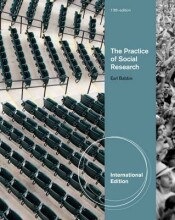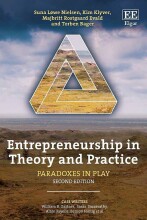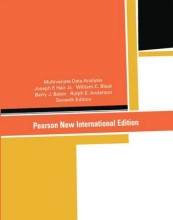Capital structure - opdrachten
19 important questions on Capital structure - opdrachten
Is it true that companies decide each year's dividend by looking at their capital expenditure requirements and then distributing whatever cash is left over?
Is it true that managers and investors seem more concerned with dividend changes than with dividend levels?
Is it true that Managers often increase dividends temporarily when earnings are unexpectedly high for a year or two?
- Higher grades + faster learning
- Never study anything twice
- 100% sure, 100% understanding
Is it true that companies who are undertaking substantial share repurchases usually finance them with an off-setting reduction in cash dividends?
Seashore salt Co. Has surplus cash. Its CFO decides to pay back $4 per share to investors by initiating a regular dividen of $1 per quarter or 4 per year. The stock price jumps to $90 when the payout is announced. Why does the stock price increase?
.Seashore salt Co. Has surplus cash. Its CFO decides to pay back $4 per share to investors by initiating a regular dividend of $1 per quarter or 4 per year. The stock price jumps to $90 when the payout is announced. What happens to the stock price when the stock goes ex-dividend?
.Seashore salt Co. Has surplus cash. Its CFO decides to repurchase stocks of &4 per share instead of a cash dividend. What happens to the stock price when the repurchase is announced?
Seashore salt Co. Has surplus cash. Its CFO decides to repurchase stocks of &4 per share instead of a cash dividend. Suppose the stock is repurchased immediately after the announcement. Would the repurchase result in an additional stock-price increase?
Dividends and shareholders: Mr. Milquetoast admire warren buffet and believes that Berkshire Hathaway is a good investment. He wants to invest 10000 bu hesitates because Berkshire Hathaway has never paid a dividend. He needs to generate 5000 per year in cash for living expenses. What should Mr Milquetoast do?
Dividends and stock prices: Some types of investors prefer dividend-paying stock because dividends provide a regular, convenient source of income. Does demand from these investors necessarily lift the price of dividend-paying stocks relative to stocks of companies that pay no dividends but repurchase shares instead?
- Demand from investors that prefer a dividend‐paying stock does not necessarily lift the prices of these stocks relative to stocks of companies that pay no dividends but repurchase shares.
- The supply of dividends should expand to satisfy this clientele, and if the supply of dividends already meets demand, then no single firm can increase its market value simply by paying dividends. Without significant tax differentials firm value is unaffected by the choice between dividends and repurchases.
Dividens and taxes: Which of the following U.S. Investors have tax reasons to prefer companies that pay out cash by repurchases instead of cash dividends?
- A pension Fund
- An individual investor in the top income0tax bracket
- a corporation
- An endowment for a charity or university
- Under current tax law, and the assumption that capital gains taxes cannot be deferred, all investors should be indifferent with the exception of the corporation.
- Corporations prefer cash dividends because they pay corporate income tax on only 30 percent of dividends received, lowering their effective tax rate
Dividend policy: Investors and financial managers focus more on changes in cash dividends than on the level of cash dividends. Why?
- Investors know that managers are reluctant to reduce dividends and will not increase dividends unless they are confident that the payment can be maintained.
- Investors are therefore more interested in the change in the dividend, rather than the level of a company’s dividend because it is an important indicator of the sustainability of earnings.
What is meant by "the information content of dividends"?
- The announcement of a dividend increase signals managers’ confidence in future profits.
- That is why investors and financial managers refer to the information content of dividends.
- A higher dividend generally leads to a rise in the stock price, whereas a dividend cut generally results in a price decrease.
Does the good news conveyed by the announcement of a dividend increase mean that a firm can increase its stock price in the long run simply by paying cash dividends?
- A firm cannot increase its stock price in the long run simply by paying cash dividends. Dividends are paid only if free cash flow is positive.
- Free cash flow is operating cash flow left over after the firm has made all positive‐NPV investments.
- Thus, a firm must find positive‐NPV projects to increase both the value of the company and its stock price.
MM insisted that the payout policy should be analyzed holding debt and investment policy constant. Why?
MM's dividend-irrelevance theorem then allows a comparison between dividend payouts and share repurchases without being concerned with the effect of either changing investment or debt levels
Respond to the following comment: "it's all very well saying that I can sell shares to cover cash needs, but that may mean selling at the bottom of the market. If the company pays a regular cash dividend, investors avoid that risk."
In this scenario, she will suffer an equal opportunity loss if the stock price subsequently rises sharply.
Comment briefly on the following statement: " Unlike American firms, which are always being pressured by their shareholders to increase dividends, Japanese companies pay out a much smaller proportion of earnings and so enjoy a lower cost of capital"
Comment briefly on the following statement: "Unlike new capital which needs a stream of new dividends to service it, retained earning have zero cost."
Comment briefly on the following statement: "If a company repurchases stock instead of paying a dividend, the number of shares falls and earnings per share rise. Thus stock repurchase must always be preferred to paying dividends.
The question on the page originate from the summary of the following study material:
- A unique study and practice tool
- Never study anything twice again
- Get the grades you hope for
- 100% sure, 100% understanding































